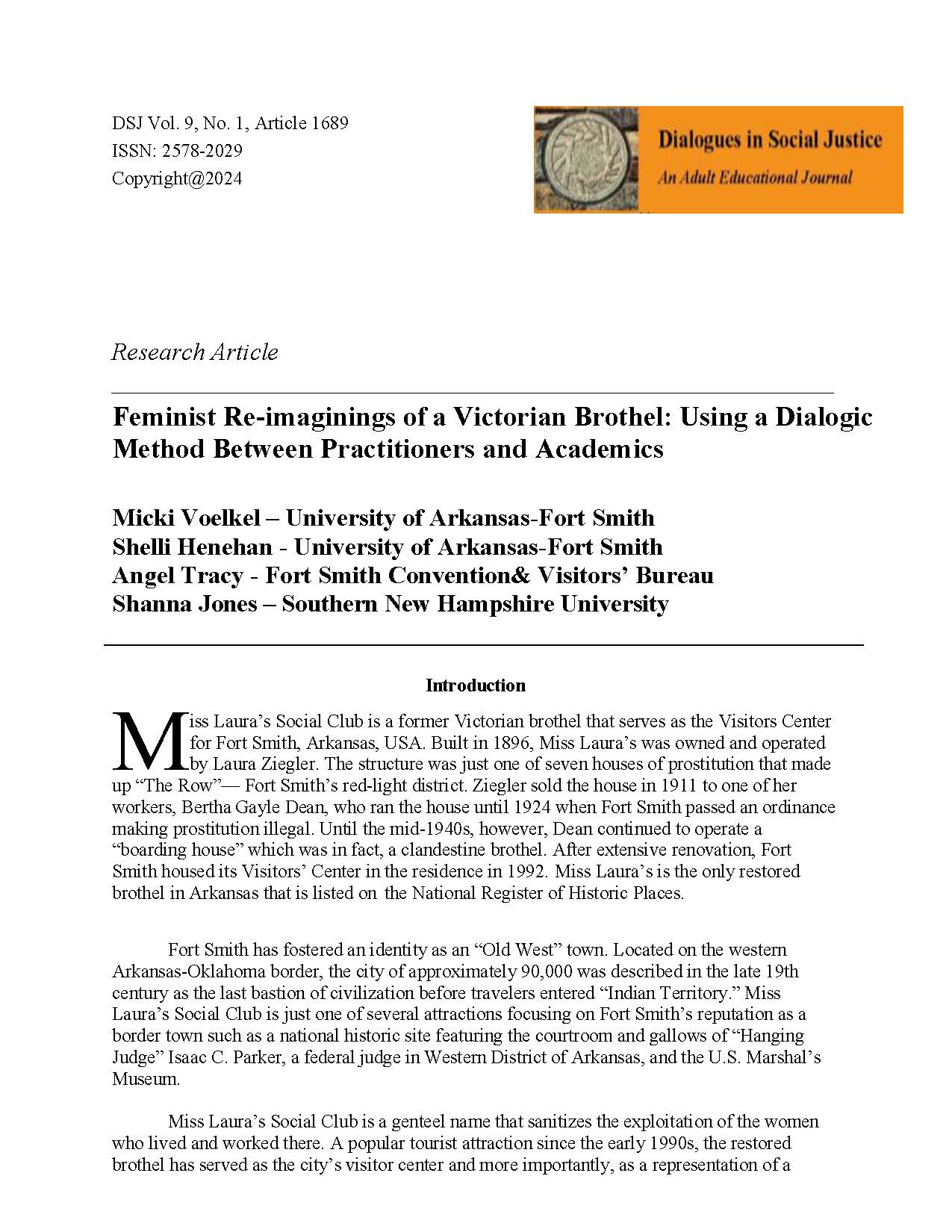Feminist re-imaginings of a Victorian brothel: Using a dialogic method between practitioners and academics
DOI:
https://doi.org/10.55370/dsj.v9i1.1689Abstract
Miss Laura’s Social Club is a former Victorian brothel that is the Visitors Center for Fort Smith, Arkansas. While the building has been a popular tourist attraction for the city since the 1990s, the exhibits in the site portray an inaccurately sanitized image of prostitution. A recent change in city leadership prompted a re-evaluation of Miss Laura’s and opened an opportunity to re-imagine the space in ways that would continue to appeal to tourists yet reflect a realistic portrait of the lives of the women workers. Through semi-structured dialogue, two practitioners working at Miss Laura’s and two university researchers imagined the exhibit space in the Front Parlor into a restructured historically accurate narrative. Explorations of feminism, glamorization of prostitution, elitism and the conflict between heritage sites’ roles offer a model for other feminist researchers and practitioners to transform these sites by addressing critically their histories of whitewashing inconvenient gendered truths.

Downloads
Published
Issue
Section
License
Authors who publish with this journal agree to the following terms:
a. Authors retain copyright and grant the journal right of first publication with the work simultaneously licensed under a Creative Commons Attribution License that allows others to share the work with an acknowledgement of the work's authorship and initial publication in this journal.
b. Authors are able to enter into separate, additional contractual arrangements for the non-exclusive distribution of the journal's published version of the work (e.g., post it to an institutional repository or publish it in a book), with an acknowledgement of its initial publication in this journal.
c. Authors are permitted and encouraged to post their work online (e.g., in institutional repositories or on their website) prior to and during the submission process, as it can lead to productive exchanges, as well as earlier and greater citation of published work (See The Effect of Open Access).

